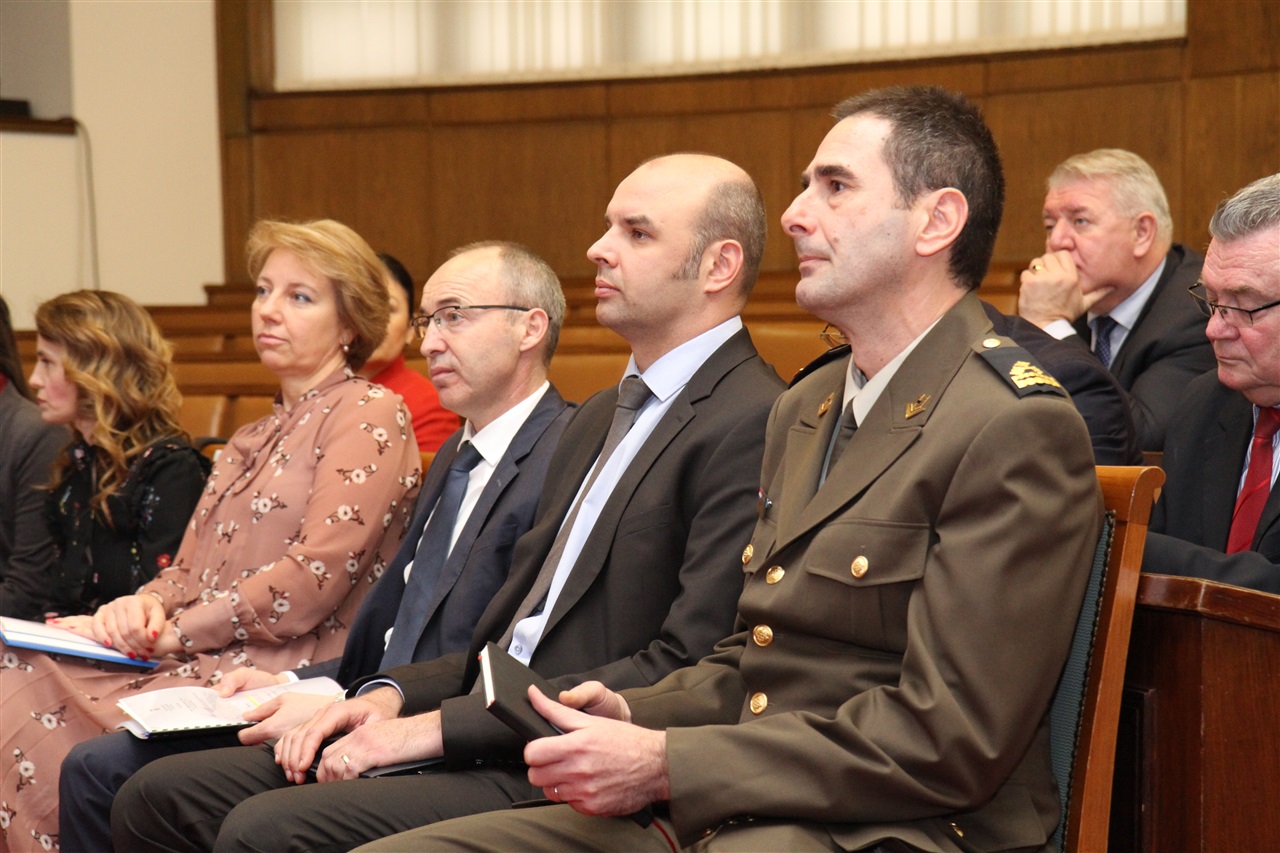
Zagreb – The Defence Committee and the Foreign Affairs Committee of the Croatian Parliament jointly organized a thematic session where Mr Damir Krstičević, Defence Minister, presented the programme of the Permanent Structured Cooperation (PESCO) incorporated in the European Union's Common Security and Defence Policy.
By way of introduction, Minister Krstičević underlined PESCO's complementarity with NATO's goals and its focus on strengthening the industrial dimension of defence. After establishing PESCO in December 2017, on 6 March 2018 EU's defence ministers gathered at the Foreign Affairs Council (FAC) adopted a first set of 17 different projects within PESCO aimed at common training and exercise, cooperation in operational domains (land, air, maritime and cyber) and building joint capabilities.
It has been emphasized that the Republic of Croatia participates in 5 PESCO projects in the fields of military mobility, deployable military disaster relief, creating a network of logistic hubs in Europe and support to operations, enhancing maritime surveillance, and rapid response and mutual assistance in cyber security.
Croatia joined PESCO as this format opens up ample opportunities for developing national capabilities, it matches national and NATO's goals and obligations, and strengthens the country’s foreign policy position within the European Union. The state secretary at the Ministry of Foreign and European Affairs Ms Andrea Metelko Zgombić assessed the latter as a particularly important aspect stressing that Croatian military potential could make a significant contribution to national foreign policy goals. The presentation of PESCO further emphasized the opportunities that this programme could offer to the economy in terms of development of the national defence industry as well as of cooperation with small and medium enterprises and the scientific research community including cross-border cooperation.